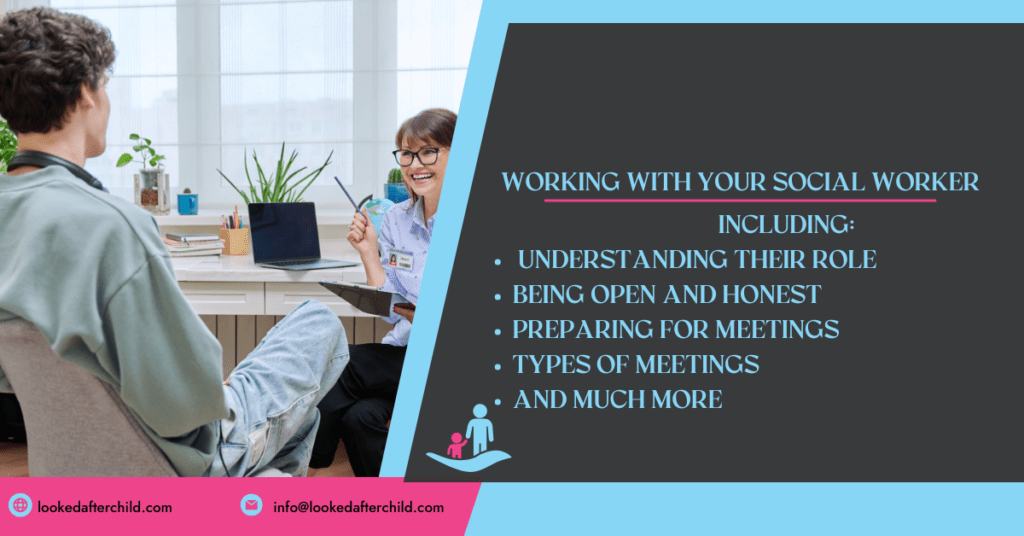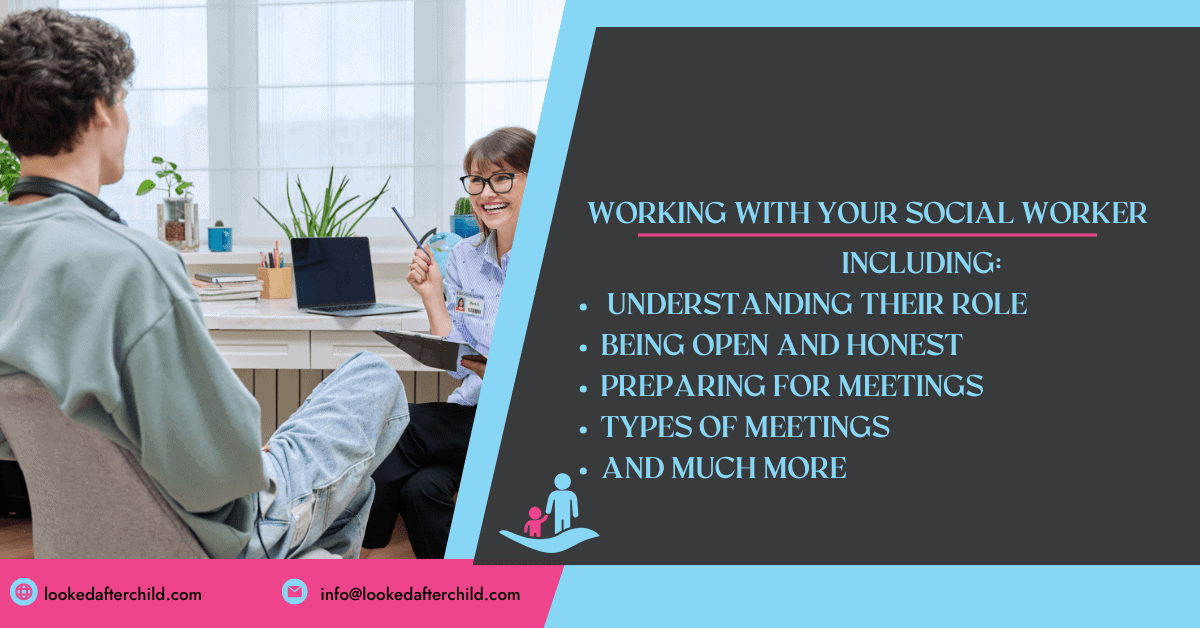
Being in care can be a confusing time. You might have a lot of questions and worries about what’s happening. One of the most important people in your life right now is your social worker. They’re there to help you, but sometimes it’s hard to know how to work with your social worker effectively.
This guide will give you some top tips on how to build a good relationship with your social worker and make the most of their support.
Table Of Contents
Understand Their Role
Social workers are there to:
- Keep you safe: Their main priority is your wellbeing.
- Listen to your views: They want to hear what you have to say about your life and your care.
- Help you with your needs: This could be anything from finding a new placement to accessing support for your education or mental health.
- Plan for your future: They’ll work with you to think about what you want to achieve and how to get there.
Be Open and Honest
It’s really important to be honest with your social worker, even if it’s about something difficult. They can’t help you properly if they don’t know what’s going on. Try to:
- Share your feelings: Whether you’re happy, sad, angry, or scared, let them know.
- Talk about your worries: Don’t be afraid to ask questions or raise concerns.
- Be truthful about your situation: This includes things like your relationships, schoolwork, and any problems you might be facing.
Keep in Touch
Your social worker is busy, but they want to hear from you.
- Attend meetings: Make sure you go to any planned meetings and be on time.
- Let them know about changes: If something important happens in your life, tell them.
- Contact them if you need to: If you have any questions or concerns between meetings, don’t hesitate to reach out.
Ask Questions
It’s okay not to understand everything. If your social worker says something you don’t understand, ask them to explain it differently. You have the right to be involved in decisions about your life, so make sure you understand what’s happening.
Reflecting on Your Experiences
It’s not always easy to see things clearly when you’re in the middle of a situation. As you get older and look back on your time in care, you might gain a new perspective on the decisions that were made and the role your social worker played. It’s possible to appreciate their efforts and understand their intentions, even if you didn’t always agree with them at the time.
Preparing for Meetings
Meetings with your social worker are a good opportunity to talk about what’s happening in your life and make plans for the future. Here are some tips on how to prepare:
- Write down things you want to talk about. This could be anything from problems at school to things you’re enjoying.
- Think about any questions you have. Don’t be afraid to ask about things you don’t understand.
- If you’re feeling nervous, talk to someone you trust. This could be a friend, family member, or another trusted adult.
- Bring something to do if you think you might have to wait. Meetings can sometimes run late.
- Remember that your social worker is there to help. Try to be open and honest with them.
Types of Meetings You Might Attend
- Initial Health assessment and Placement Planning Meetings: These happen when you first come into care.
- Looked After Child Reviews: also known as Child In Care Reviews
- Meetings about your care plan: These happen to discuss any changes to your care plan.
- PEP (Personal Education Plan): These happen to discuss your progress at school or any health concerns you may have.
- Meetings about your wishes and feelings: These happen to give you a chance to share your thoughts and feelings about your care.
- Meetings to prepare you for leaving care: These happen as you get older to help you plan for your future.
In most cases, a social worker must meet up with you at a minimum of every 6 weeks, even if it’s just a catch-up and not linked to one of these bigger meetings.
If you really disagree with your social worker, you can always ask for help from an advocacy service. An advocate can help you understand your rights, speak up for yourself, and make sure your views are heard.
Remember They’re There to Help
Sometimes you might not agree with your social worker, and that’s okay. But remember, they’re on your side and want what’s best for you. Try to be respectful and work together to find solutions.
Working with your social worker can make a big difference in your life. By following these tips, you can build a strong relationship and get the support you need to thrive in care.


0 Comments